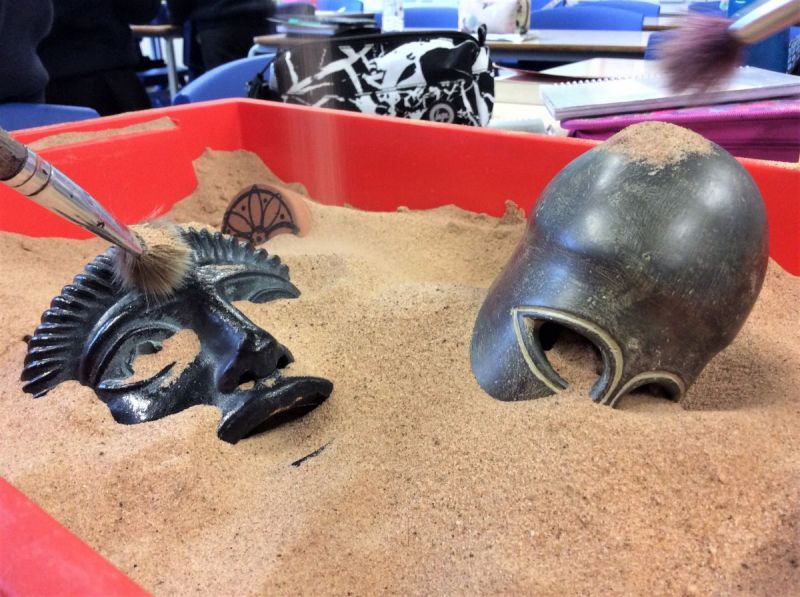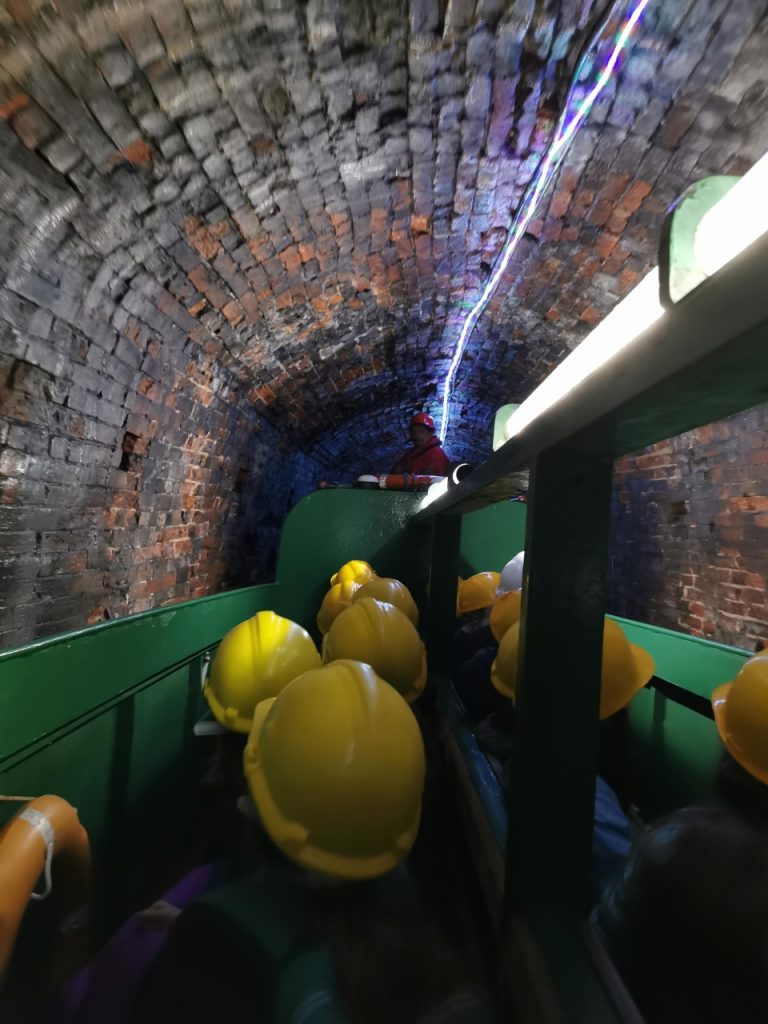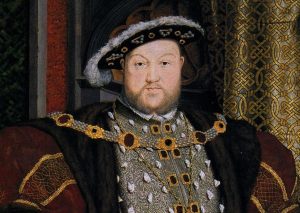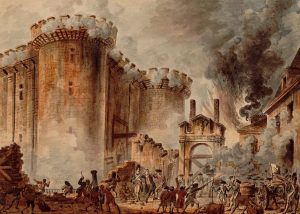Choose a Subject
At Parkside we believe that History helps to make better citizens. Through looking at past events and interpretations of them, pupils are encouraged to think independently, critically and objectively about the world around them. Parkside’s curriculum engages with a wide range of historical narratives to broaden their outlook of the world, cultures and political narratives.
By engaging with complex and emotive issues in the past, pupils are led to draw relevant and contemporary parallels which challenge them to maintain open minds and confront prejudice.
It is the strong belief of the department that our pupils look at the evidence provided to them and to freely come to their own judgements and opinions. There is always something which will interest pupils in History because it involves the whole of human experience.
History at Parkside delivers a wide skill set. Pupils are equipped and supported to draw upon a wide range of skills and knowledge in their History lessons: from the art of writing to the science of source analysis, pupils are taught the ability to back up these skills with key knowledge.
Pupils will be exposed to a range of experiences beyond their own lives; this helps to promote understanding and acceptance in the modern world and to explore our country’s unique influence in shaping the world we inhabit. Pupils are encouraged to use information critically, no matter the source. This is vital when interpreting the news media, reading books or even in conversation.
Pupils are given the opportunity to see both sides of a given situation and construct effective arguments for either side. We ensure that our pupils can communicate effectively in a wide range of forms and situations. They are able to present information, analysis and interpretations in a well informed and balanced manner. Significantly, our curriculum ensures that pupils develop an appreciation of historical empathy and understand their own place within a larger human story while building upon their understanding of important British values such as democracy, tolerance, individual liberty, and rule of law.
What is distinctive about History at Parkside Middle School:
Choose a Year Group
Year 5
Long arc of study in Year 5:
The achievements and defining characteristics of pre-modern societies. How they are different to our contemporary era and what made them unique in their own time.
Vikings:
Were the Vikings just warriors?
Building upon work from Year 4 focusing on Anglo-Saxons, pupils examine that the Vikings were not truly a people but a movement. This unit aims to teach pupils the geographical, social and cultural motivations behind the “Viking” invasions. Pupils also look at the people and how their lives were different or changed over this period of time.
Ancient Greece:
Who were the Ancient Greeks and were they all the same?
Pupils focus on some of the key contributions the Ancient Greeks made to western civilisation with things such as: theatre, democracy and architecture. Further enquiry is made into if these things applied to all Greek city states and the realisation that Greek cities were not all the same through the comparison of Sparta and Athens.

Ancient Mayans:
Do we have anything in common with the Mayans?
Pupils develop their understanding of non-European societies, how it compares to the cultures they have looked at in the academic year and how this contrasts with their own by looking at key elements of Mayan society. Study ranges from their religion, attitudes towards gender and their form of governance
Year 6
Long arc of study in Year 6:
An examination of the significant turning points, places and events in British history and how they affect the world we live in today.
Industrial Revolution:
Did people’s lives get better or worse during the Industrial Revolution?
Pupils will explore the lives of people before and during the industrial revolution and how the changes in industry, technology and political rights affected British citizens. This unit will focus on Britain’s impact on the rest of the world and how the revolution changed into how we live today with groundbreaking technological inventions such as the steam engine.

World War Two:
Did the World War 2 ruin people’s lives?
Pupils are introduced to the context behind WW2: who was fighting in this war, where were the battles fought and why did it start in the first place? Then they will examine the effect it had on the British population by looking at events such the Blitz, rationing and the evacuation of children from major towns and cities. This overlaps nicely with topics such as computing and mathematics due to the connection with the Enigma code and the trip to Bletchley Park.
Local history study: Is Worcestershire historically significant?
In this last topic pupils will look at historical areas in Worcestershire County and gain an appreciation that history has affected everyone in some form or another. They will examine locations such as: The Malvern Hills, Worcester Cathedral, Hindlip Hall and the gunpowder plot as well as the battle of Worcester.
Year 7
Long arc of study in Year 7:
To examine how significant events such as the Norman Invasion and the Reformation effected the lives, mindset and culture of people in the past.
Norman Conquest: How did the Normans beat the Anglo-Saxons at the Battle of Hastings?
Pupils will explore this hugely important period in the history of the British Isles; the last successful conquest of England by a foreign power. They will look at the context and motivations for the invasion of England by not just William but also other claimants to the English throne. Primarily they will be doing an in-depth study of the Battle of Hastings and examining evidence to give a conclusive answer as to why William won this pivotal battle in British History. Additionally, they will be looking at some of the cultural impacts the Normans had on Anglo-Saxon/English society such as the Feudal System.
Medieval England: Was life in Medieval England murky and miserable for all?
The Year 7 cohort will build upon their knowledge of the Feudal System that they were introduced to last term. They will examine how the implementation of this system affected people’s lives based on their position within the Feudal hierarchy. Through studies of different groups such as Peasants, Knights and Monks they will be able to compare and contrast the different lives and make a judgment on how they Feudal system affected the quality of life of its participants.
English Civil War
- Why did Charles lose control in 1642?
- Was Charles I execution inevitable?
- Cromwell: A man to be admired or hated?
The English Civil War is a hugely important period in the history of the British Isles, not just for its own fame, but also because it allows pupils to appreciate the chaotic origins of the United Kingdom. It allows pupils to explore how the Civil War altered the power dynamics in the country.
The first part of the topic looks at how the actions of individuals and underlying conditions shape events. The second half takes a look at the Civil war itself and the last section looks at the impact of these changes with the ascendance of Cromwell and the Restoration.
The Reformation: Did Henry VIII and the Tudor heirs truly have a Reformation?

The Reformation was a historically significant moment in history wherein Henry VIII broke away from the Catholic Church and the Papal state and established an independent and Protestant Church of England. Pupils will begin by having an understanding of what separated the belief systems of Catholics and Protestants, looking at the key figure of the reformation: Martin Luther. They will look at the motivations Henry had behind this decision and what they believe were ultimately his reasonings for making this momentous decision.
Using this knowledge, they will then examine the laws and reforms that Henry Tudor and his heirs enacted during their respective reigns and evaluate whether England truly had a Protestant reformation.
Year 8
Long arc of study in Year 8:
Ideas and political power; control and collapse of imposed power; democracy and voice for people.
British Empire: Was the Great British Empire great for everyone?
This unit introduces the British Empire to our year 8 students. Looking at the size of the Empire, reasons for its expansion and when this occurred. Pupils will be given sources with differing opinions on the British Empire to explore perceptions of the British Empire such as the perspective of the American revolutionaries, the Native Americans and India. They will be shown debates surrounding controversy that still exists in the modern world such as the Indian Diamond: The Koh-i-Noor a jewel that sits in the crown of the British Monarch. This is to show how relevant the British Empire still is today and how it has affected the modern world. It will also get pupils to formulate their own opinion on their nation’s past.
Slavery: Did all British people benefit from the Transatlantic slave trade?
This topic aims to give context to a lot of the issues in the recent past such as the Black Lives Matter protest and other issues involving racism in the western world. It will give an overview of the motivation behind the slave trade, where and how slaves were captured and their journey to the Americas. Pupils will be exposed to accounts of the atrocities that occurred during the slave trade to increase their empathy for the people most affected by it. Additionally, pupils will also examine those people who resisted and ultimately contributed to the abolishment of the trade and therefore increase their understanding of historical causation. Throughout pupils will be asked whether what they have learnt shows whether Britain and British people benefitted from the slave trade and whether we as a nation should be held responsible for our participation.
The French Revolution: Did the French Revolution improve the lives of the French people?

The French Revolution is a chaotic period of time that builds upon pupils' knowledge key theme, that were introduced in previous topics such as political revolution, rights and freedoms and democracy. We will examine the root cause of the revolution by examining France’s feudal system: The Ancien Regime and how this combined with the actions of Louis XVI contributed to a cry for change. After we will examine what happened over the course of the revolution and how positive change isn’t always a ‘straight line’. Pupils after looking at these events and changes will evaluate whether the revolution was worth it and did the French people benefit from their revolution?
